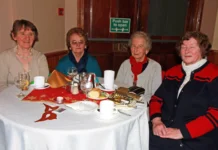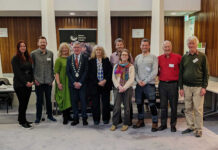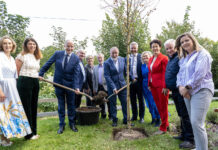![CUH translation4 2024 BL [77]@30-07-2024-15_05_49](https://avondhupress.ie/wp-content/uploads/2024/07/CUH-translation4-2024-BL-77@30-07-2024-15_05_49-696x358.jpg)
A Cork hospital has begun translating complex health information into six different languages in a project which organisers say should be replicated nationwide.
Cork University Hospital Charity is funding the unique initiative at CUH to reflect the growing number of foreign national patients presenting at its breast radiology department.
Crucial patient care information is now available in Arabic, Lithuanian, Polish, Romanian, Ukrainian and Russian.
The pamphlets will explain in their native language what a mammogram, ultrasound or biopsy involves, risk factors to be aware of, breast symptoms and lifestyle advice.
“It will have a widespread impact. The information is there, not only for these patients, but for other patients into the future,” said Advanced Nurse Practitioner, Susan Walsh of the Rapid Access Breast Service at CUH.
“Because we have so many nationalities residing in Ireland, it should be in all hospitals and part of the standard of care to provide information in as easy-to-understand language as possible.”
‘PLAIN ENGLISH’
Patient care information has already been produced in four different languages by the Breast Family History Service at CUH.
Most of the 5,500 new patients seen every year at the hospital’s symptomatic breast clinic will be further referred to the radiology department for diagnostic scans.
CUH collaborated on the translation project with the National Adult Literacy Agency (NALA), which helps remove barriers to people with literacy difficulties.
Census data from 2022 shows that the number of non-Irish citizens living in this country stands at almost 632,000 (12%) and to address the communications gap, a multi-disciplinary team from the breast radiology department set about reviewing patient letters and information.
The documentation was reviewed and edited over several months with NALA and achieved the ‘plain English’ mark before being translated into the six languages based on Census figures and the most frequently requested translators in the breast service.
The next step is transferring the common information onto an online platform.
“A lot of information is given to patients at these clinics and the main purpose is that what we provide to them is easily understood, regardless of nationality,” said Ms Walsh.











